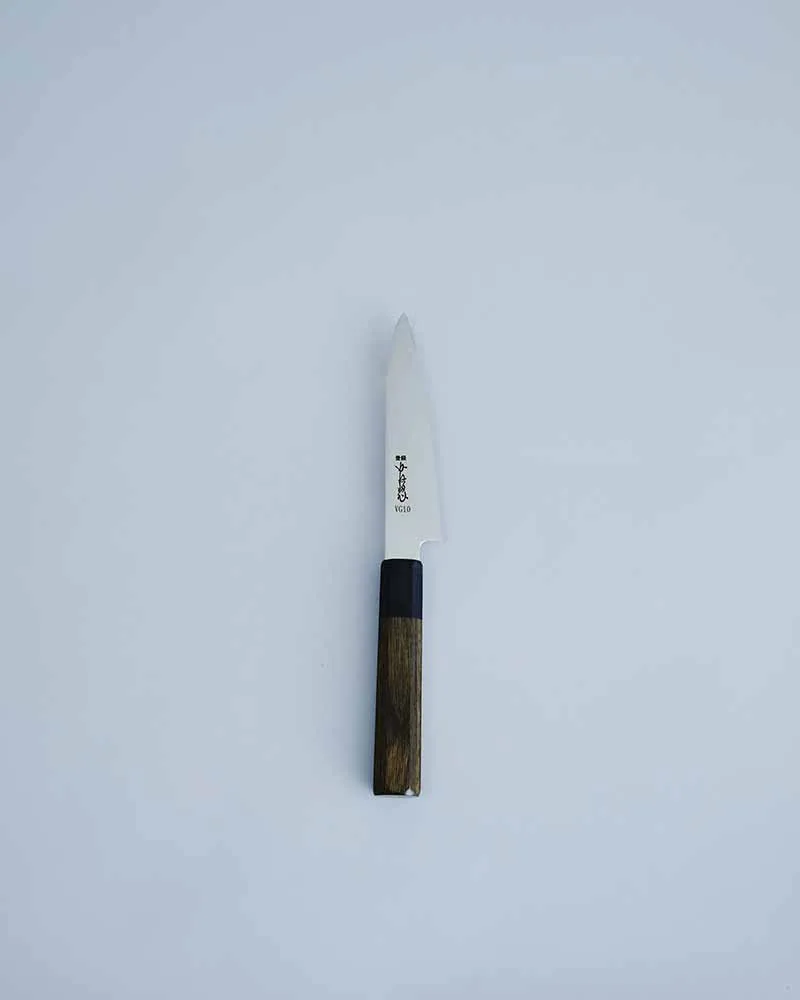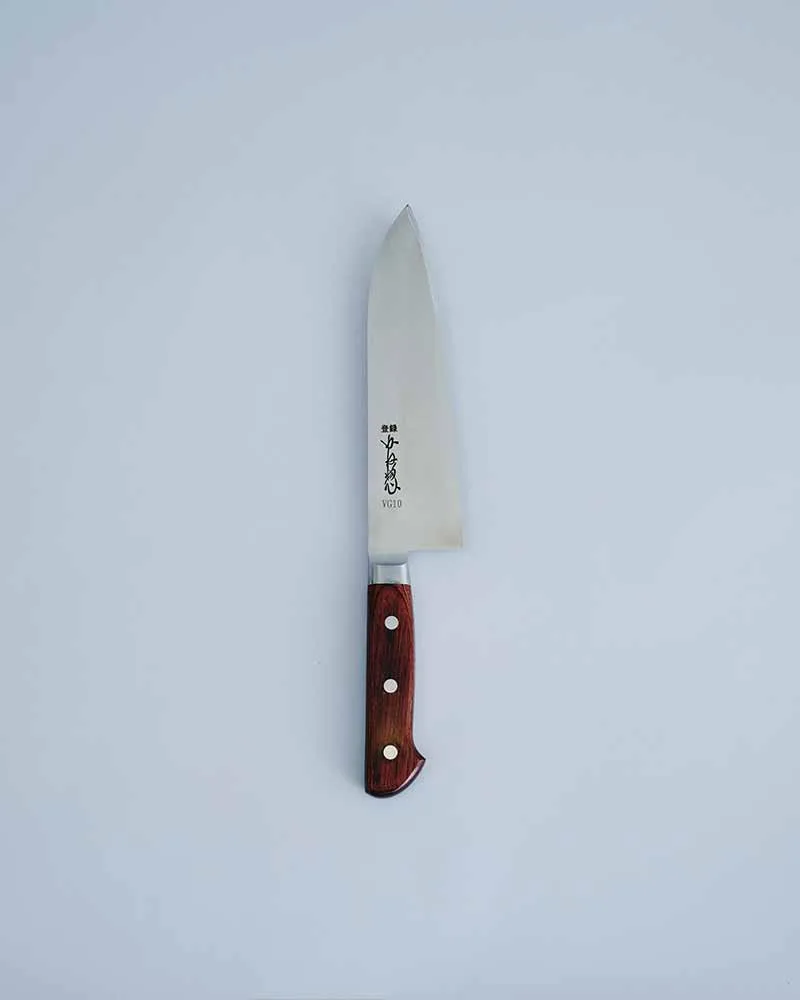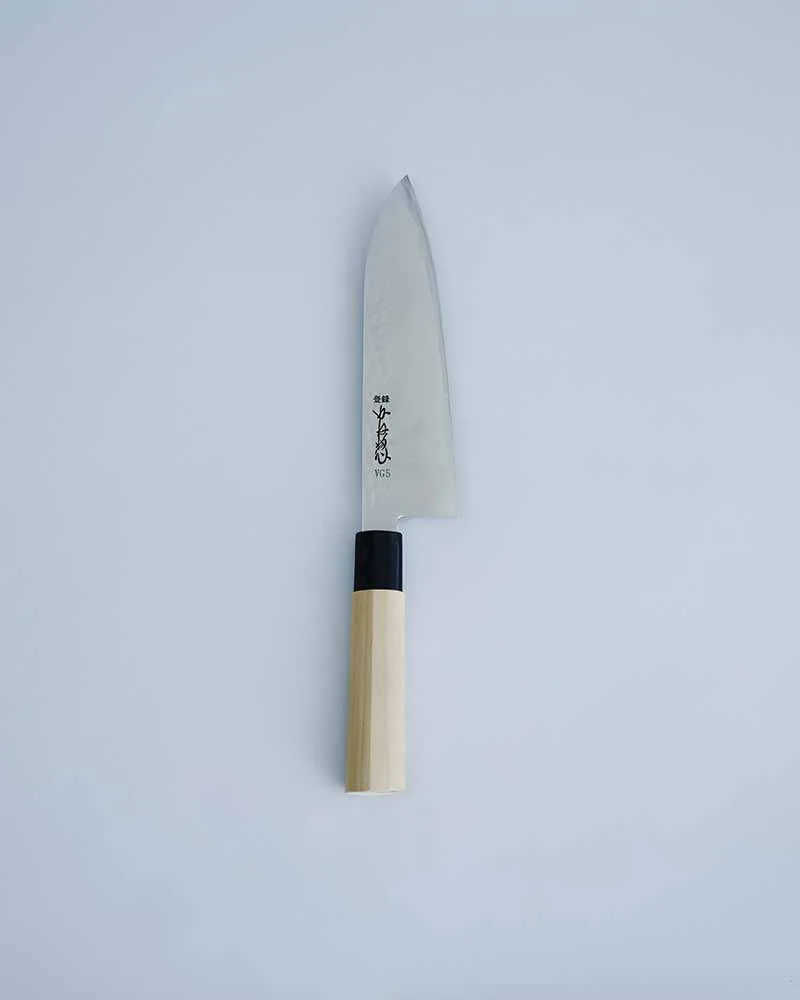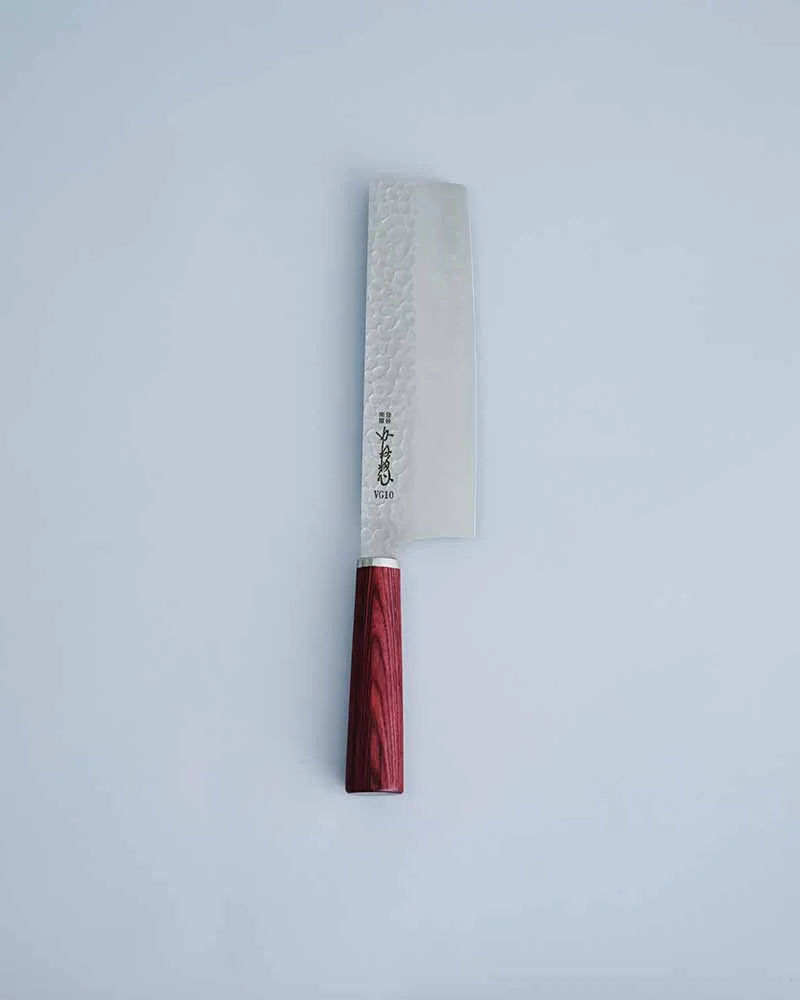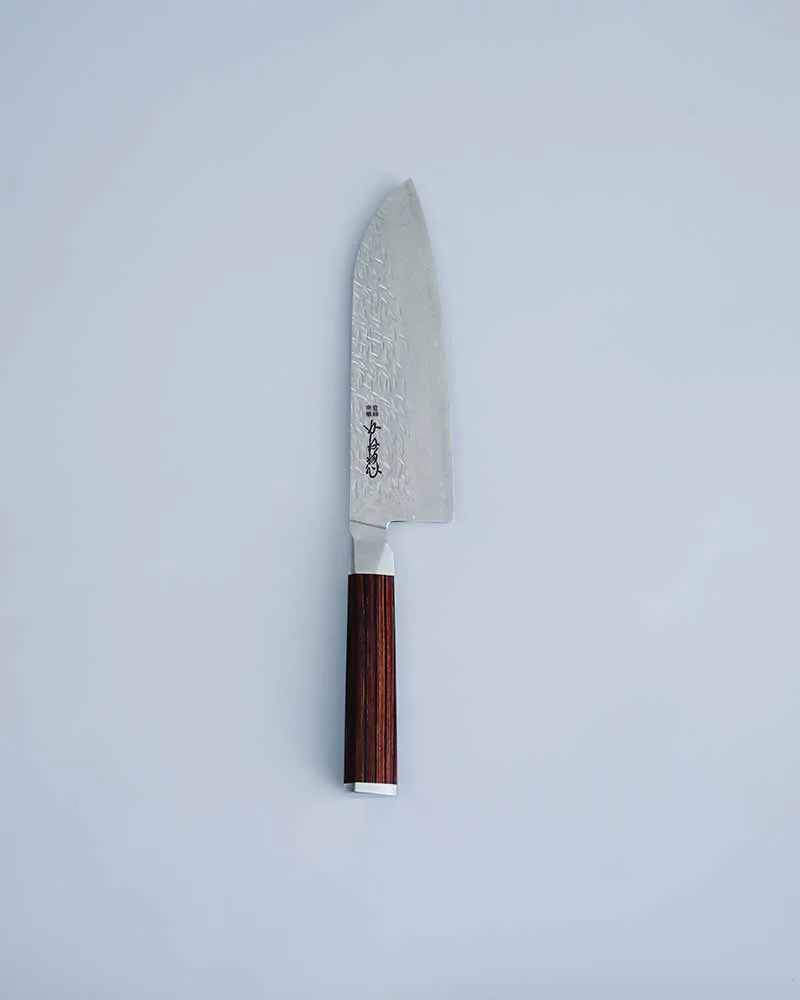Honke Kaneso


Knife
“Opposed to mass production”
The most important thing is to pass on the techniques from the previous generation. My father was against mass production. We make each and every one of our knives to please our customers, and that is what we value the most.
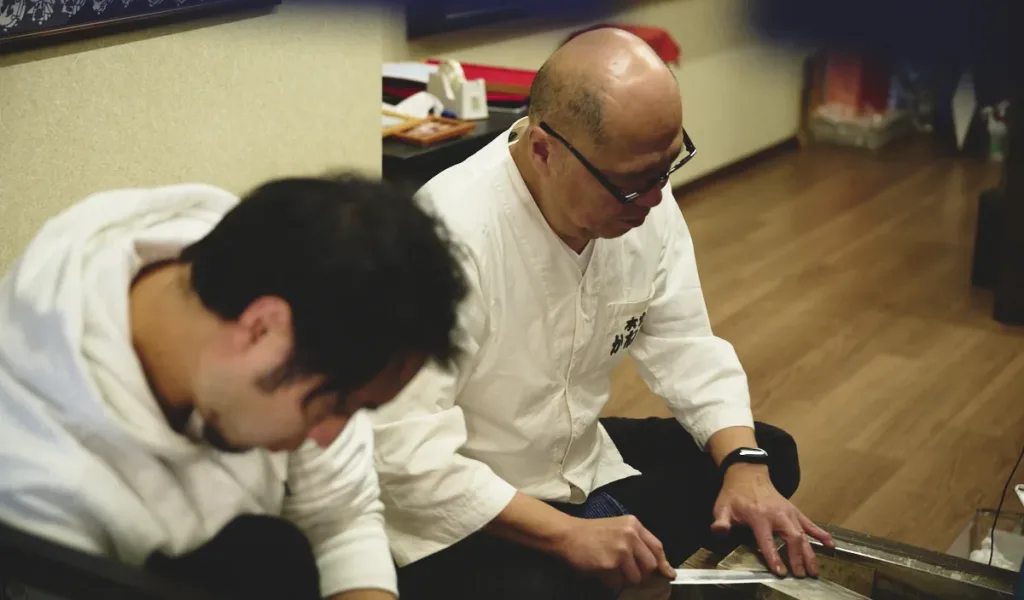
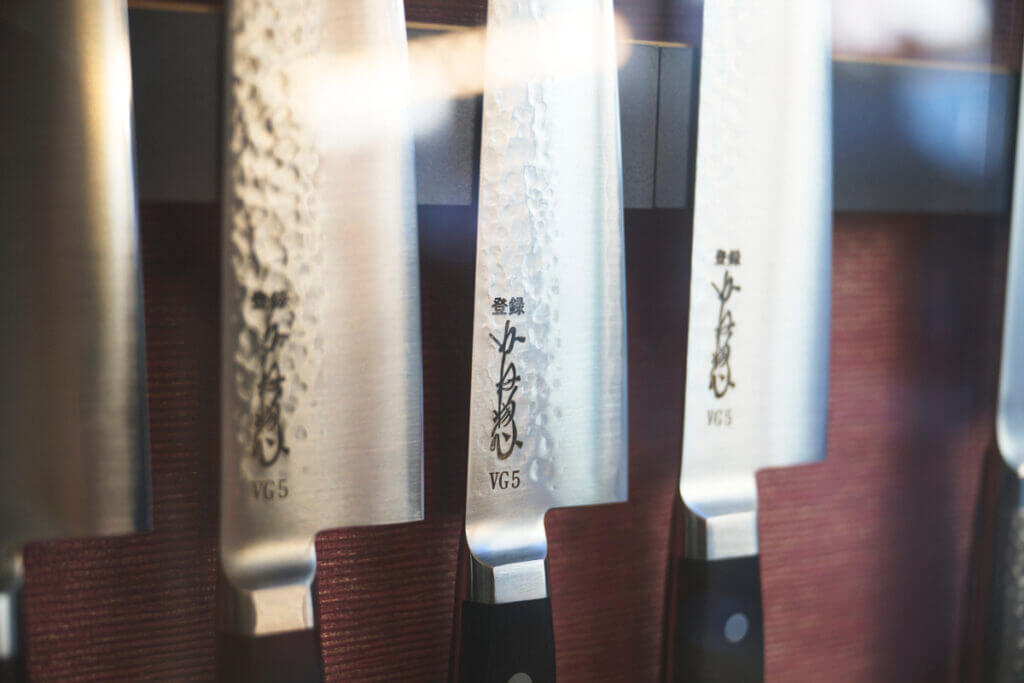
Roots
Every family had a knife and chefs used knives, of course. I’ve heard that people went to sword shops to buy knives.
During the Edo period, there were no knife specialty shops. During the Meiji period, the government issued the Sword bolishment Edict. Sword shops became toolsmiths to make lows, hoes, planes, and chisels for farming. Some shops specialize in knives, and that’s how knife specialty shops started. Our shop was established in 1873, and we were probably one of the pioneers of knife specialty shops.
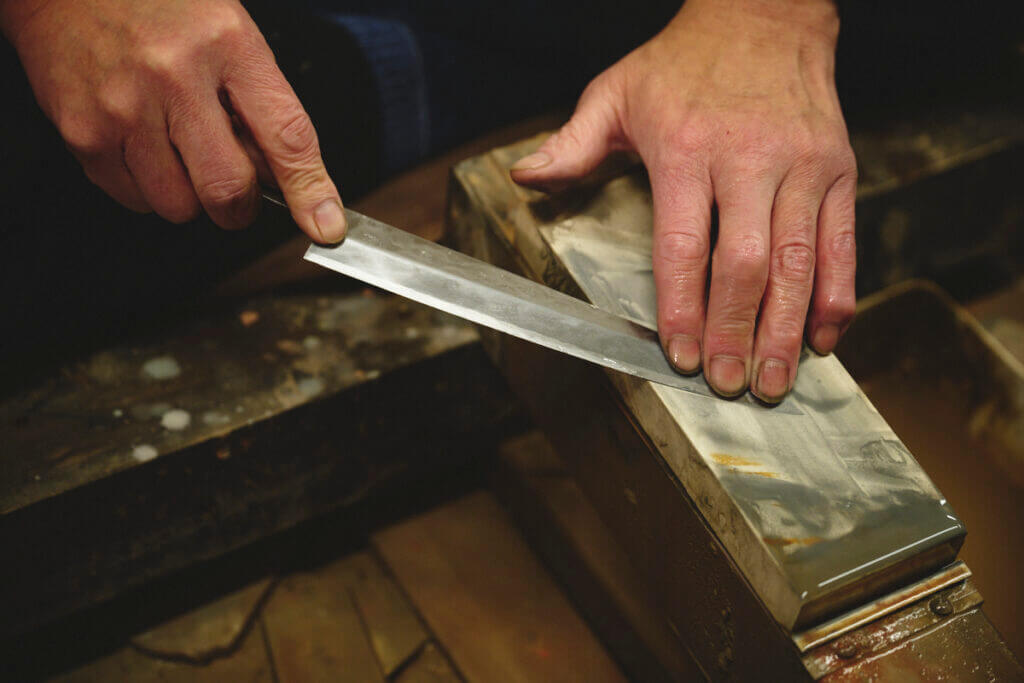
Process
The materials of our knives are steel and stainless steel. The steel is heated and then hammered out – shaped under heat to some extent – and then quenched. If you rush this process to finish making the knife, you will lose the shape, and have to reshape it. We will continue this process to make the final shape. Because the process is divided into separate steps, it takes about three months to make one knife. After using the knife for a while, it gets dull and we sharpen it. Sharpening stones have several different surface textures. We use different stones depending on the type of knife. It depends on the knife, but usually, 10 minutes will be enough.
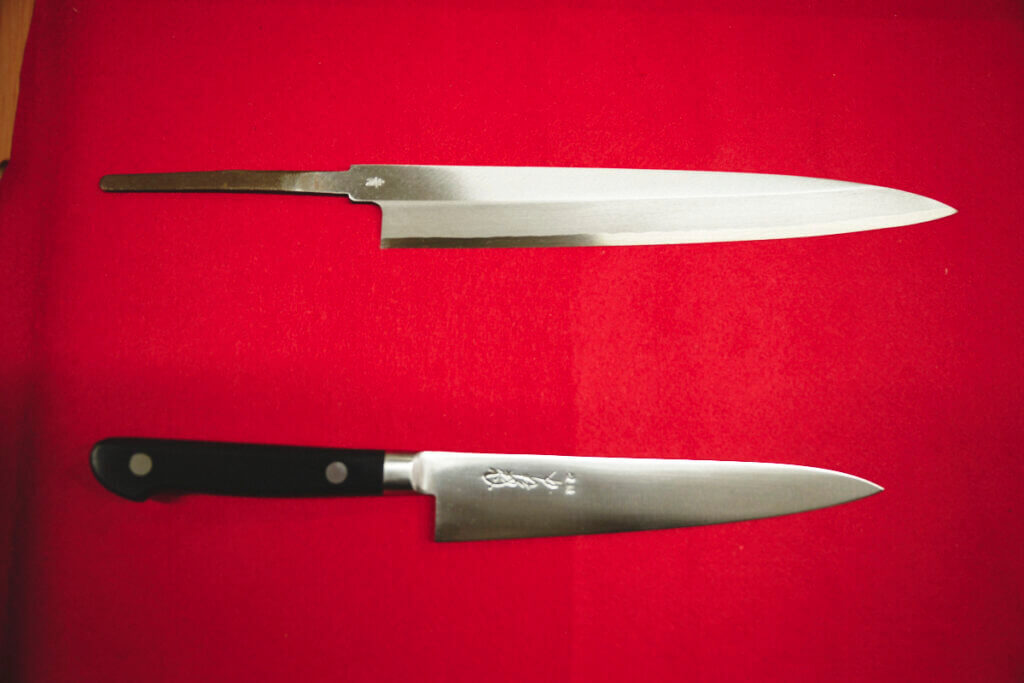
Usage
Some people think the way to care for a knife is to sharpen it after it gets rusty. You actually need to sharpen it when it doesn’t cut well anymore and polish it to prevent rust. You can polish it every day and you can sharpen it 2-3 times a year depending on how often you use it. If you take care of the knife by polishing and sharpening it, the knife should last 20-30 years. My customer wishes to purchase a good knife and use it for many years. I build relationships with my customers because they bring knives to get sharpened and we talk during the time. I truly appreciate those long-lasting relationships with my customers.
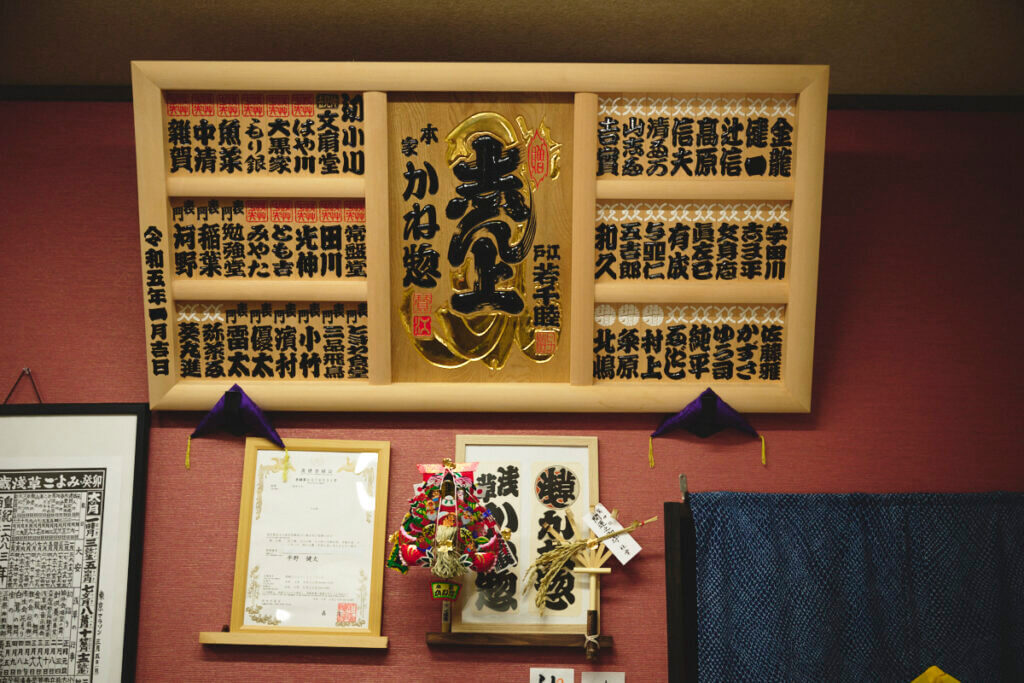
Relationship with Asakusa
People who have businesses in Asakusa, I think many of them work for their family business. We all grew up with the anjya festival since we were kids. Not working for the family business means we would have to find a job outside of sakusa. That’s risky because we might not be able to fully engage in and enjoy the festival [laughs]. To enjoy the festival; taking care of the family business is the best way to do it. We who do business in Asakusa are all about festivals, aren’t we?
WORKS
Our values
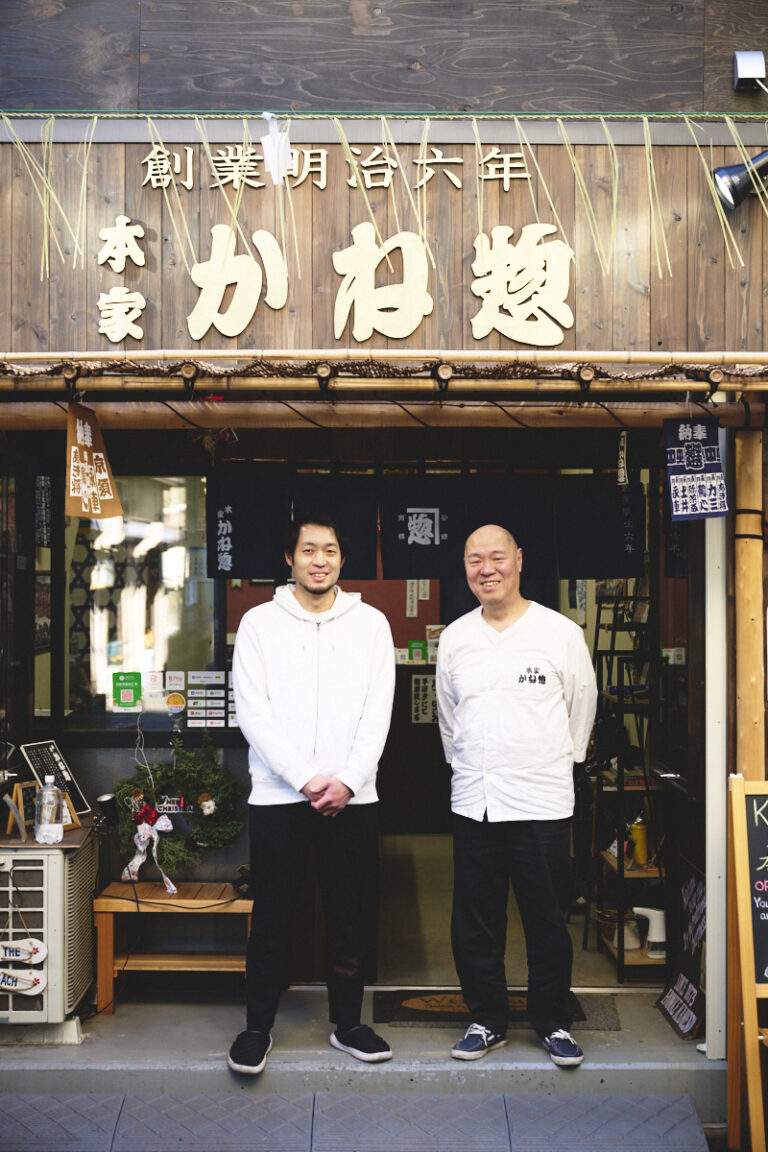
HIRANO Soichi
The most important thing is to pass on the techniques from the previous generation.My father often said we are 30% merchant and 70% craftsmen. We have to spend more time as craftsmen than as businessmen.My father was against mass production. We make each and every one of our knives to please our customers, and that is what we value the most.

